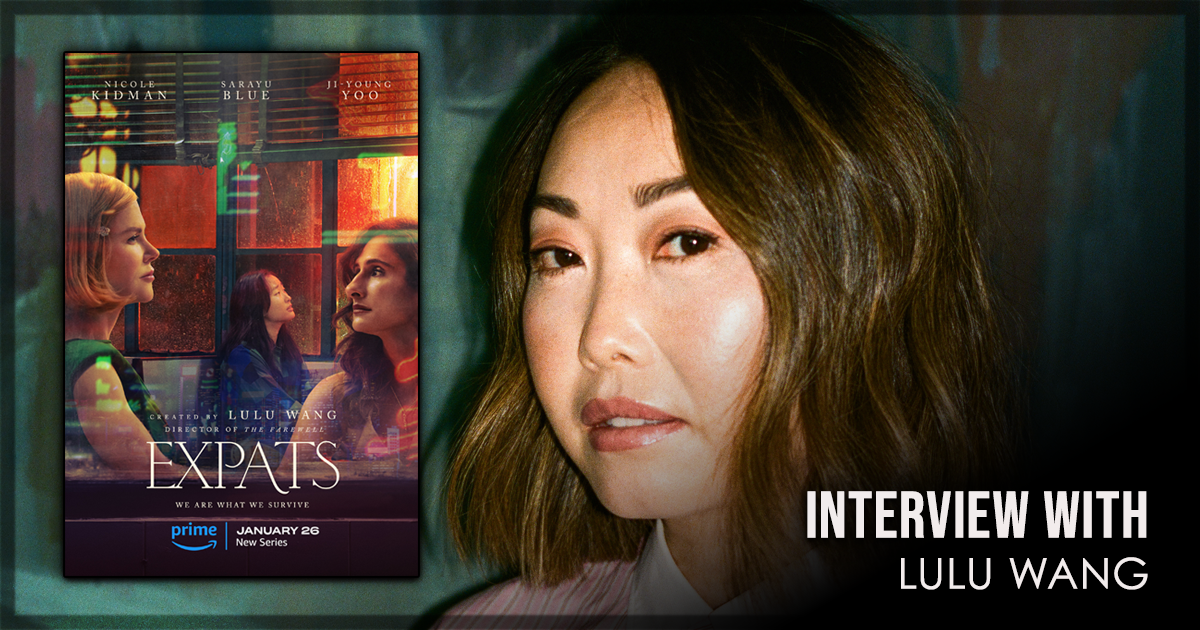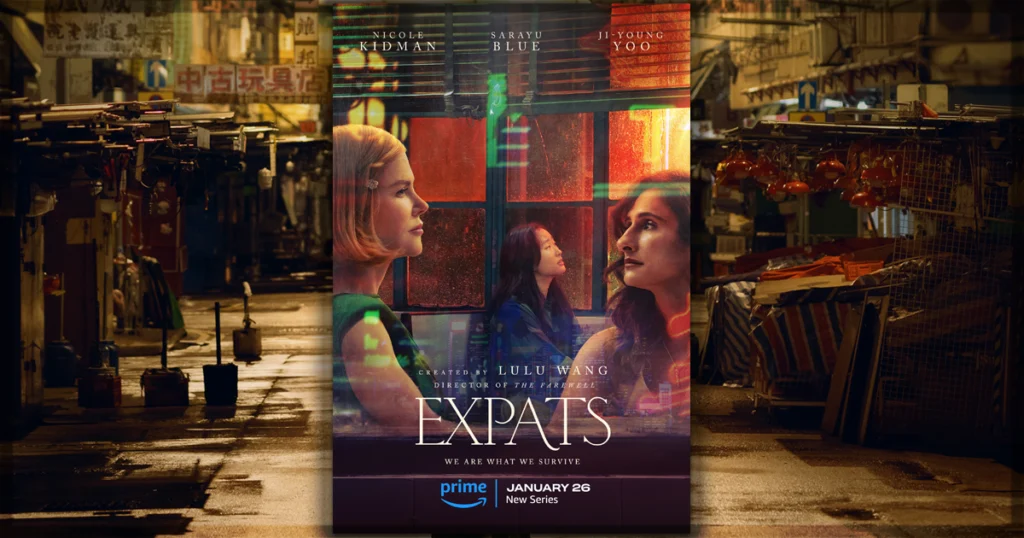In 2019, director Lulu Wang stunned the world with a poignant family drama, The Farewell. The movie showed her directing prowess and gave viewers an idea of how hard-hitting stories can be told with so much elegance. The film won Best Picture at the Independent Spirit Awards and earned Wang all the praise she deserved. People expected its follow-up to be a feature-length film. However, the director took a different route and came forward with a TV series, Expats, now available to stream in full on Prime Video.
Starring Nicole Kidman, Sarayu Blue, and Ji-young Yoo, Expats primarily focuses on three women trying to overcome grief and guilt in a very profound way. The show starts with a startling voiceover, which talks about how people never talk about those responsible for causing life-altering scenarios. It gives viewers an idea about what to expect from the story. Apart from tackling grief, the Expats also talks about people who have migrated from other countries in order to make a living. It is a very sensitive subject and needs to be handled by someone who has experienced similar situations. Well, no one other than Lulu Wang could have tackled this story with so much nuance and authenticity. Wang, whose parents moved to the US from China when she was six-years old, takes viewers on a journey that makes them understand what it means to be an expat.
With her dog making a cute cameo appearance beside her, director Lulu Wang opened up about her show and the kind of research that went into it. The director shared a deeper look at the themes of Expats and how it relates to the world. And Wang opened up about how Nicole Kidman convinced her to do the show, and even shared some of the talented actors she most wants to work with someday.
The Interview with Expats Creator and Showrunner Lulu Wang
[Editor’s note: This interview has been lightly edited for clarity.]
Aayush Sharma: A massive congratulations on Expats. Brilliant series, but you took the word by storm with The Farewell and people expected that its follow up would also be a feature length movie, but you took a different route and decided to make a TV series. So what was the transition like from directing a movie to making a series? What kind of challenges did you face?
Lulu Wang: Yeah, I thought I would be making a movie too. I think that the reason I chose to do the series instead, was that it gave me a playground that I could really stretch as a director and I could do many different things. I could do it on a bigger scale, but I could still have creative control. So I’ve talked a lot about finding my voice as an artist, and I felt like with this series that I could really explore my voice in all of these different ways. And I think the challenge, of course, is that it is such a large leap. It was the first time we worked with a movie star and a big studio shooting in Hong Kong. The scale of the production itself, we had a massive storm in Episode Five. We were doing set builds. And also the amount of time we were shooting for six months or something. The amount of shooting days total for six and a half hours is so much more. So just keeping the tone and everything continuous so that it all feels still like one piece.
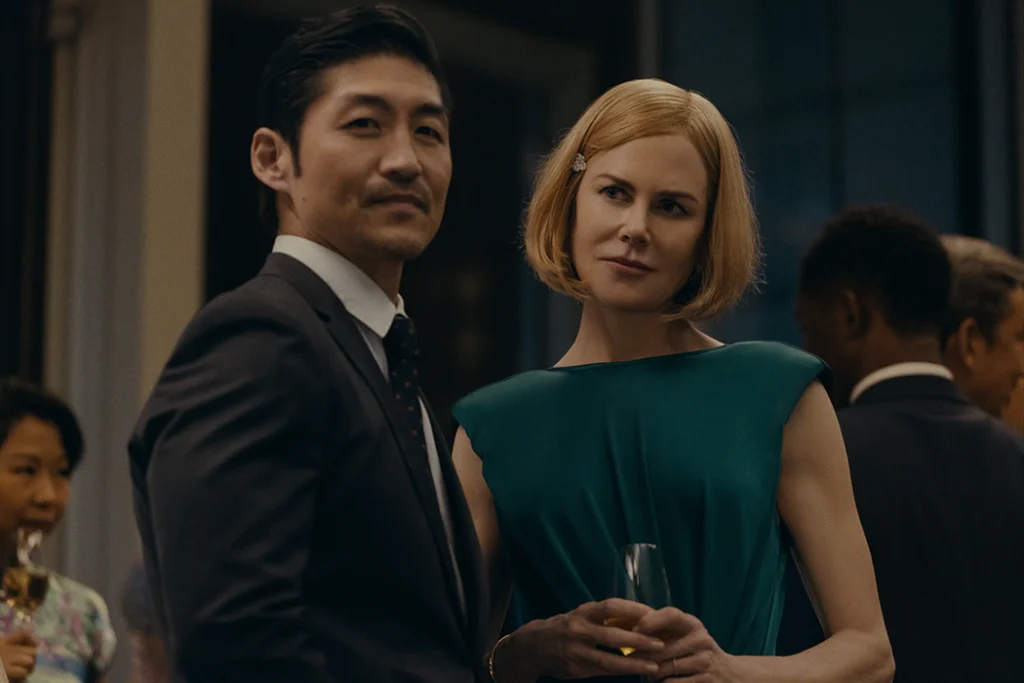
On if the project offers she got were different after The Farewell
Aayush Sharma: But do you think that things changed for you after The Farewell? Did you get calls about telling stories that were not just related to the Asian American community? If not, did that ever irritate you?
Lulu Wang: I think I get a lot of projects centering Asian Americans. It doesn’t irritate me because I’m really proud to tell the stories of Asian Americans. And I think there is still a need for more representation of different kinds. But the place where it feels limiting is that I think that films and stories cannot only be about identity. I think any story can be an Asian American story, just cast an Asian American actor and make the specifics of that character part of … The specificity of their background, part of the story. Every character comes from somewhere, why couldn’t they be Asian American? And I think that’s where we can start to just expand on the type of storytelling, that it doesn’t have to be a specific identity story about being Asian American. It can be Mr. & Mrs. Smith. It can be a spy story, but I would love to see when the specificity of the casting actually shapes the story.
On exploring cross cultural themes with The Farewell and Expats
Aayush Sharma: With The Farewell and Expats, there is a distinct aura of exploring cross-cultural identity in your projects. What other narratives in this particular theme are you keen on recreating or exploring
Lulu Wang: Specifically, you mean in the cross-cultural theme?
Aayush Sharma: Yes, yes, yes.
Lulu Wang: Well, I think that the themes I’m most interested in in a bigger philosophical way is this idea that we are becoming a more global society. And I actually, growing up as an immigrant, I felt like an outsider, but now more and more people are not living in the place where they were born. So yes, it’s about a sense of home, what is home? And it’s about cultural specificities that I love. I love being able to portray that. I think there’s so much humor in individual cultures that I don’t find in American culture, and I love capturing that. Like what a culture finds funny Americans might find offensive. And I think that’s interesting. So I think overall, people should have a curiosity about other people rather than a fear or judgment. And if they’re very, very different from you, they’re also human. Understand why, because, and I say this because we are moving from a tribal society to a much more global one in which we all have to consider ourselves members of the human race and not just of our own individual race or gender or however you identify.
Lulu Wang: And I just think that that’s going to change even more in the next 50 years. And so we have to move in this direction where we start to really see each other or at least try to see each other.
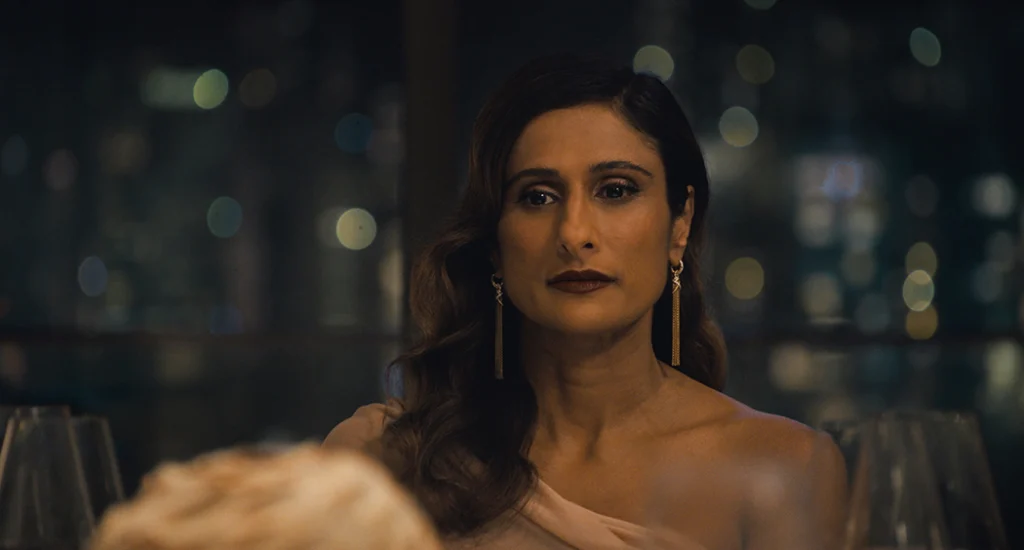
On the research that went into making Expats authentic
Aayush Sharma: When we talk about Expats, Expats is not just about people experiencing grief. It also talks about a country, its political systems and people trying to make a living in a different country. Apart from the book, what kind of research went into making this project to make their stories as authentic as possible?
Lulu Wang: Well, I spent a lot of time in Hong Kong on the streets and talking to different people and going into different people’s homes, and watched a lot of documentaries about the political movement, the differences between 2014 and 2019. And also just having grown up in China, going back all the time to even the mainland like Beijing and Shanghai, which are very different from Hong Kong, but as far as the intersection of cultures, that’s kind of the world that I’ve always been in. I’ve always been in cities and places where I’m surrounded by friends and family from all different backgrounds. So that really inspired the way I was going to intersect all of these different types of people in the show.
On how being fired from Pineapple Express turned out to be the best thing for her as an artist
Aayush Sharma: While reading about you, I was actually shocked to learn that you were fired as an assistant from Pineapple Express. Did that change you as a person who was trying to make it big in the industry? Also the people who fired you, have they ever reverted and asked to work with you after the success of The Farewell?
Lulu Wang: (laughs) No, it was one person who’s not in the industry anymore, but I don’t hold any grudges. I really, really think that that’s the thing that needed to happen in that moment, because otherwise I would’ve stayed believing that I could be an artist by continuing to work, climb my way up in the industry. And I think that in order to become an artist in the industry, there’s no way around it, you have to leap and take risks, and it’s not about just working your way up. It takes a lot of faith and taking risks to figure out your own voice, particularly for anyone who is from a community that’s super underrepresented in Hollywood, you’re trying to tell stories that haven’t been told before, that it takes a lot of faith. So yeah, I really think that that was the best thing for me at the time.
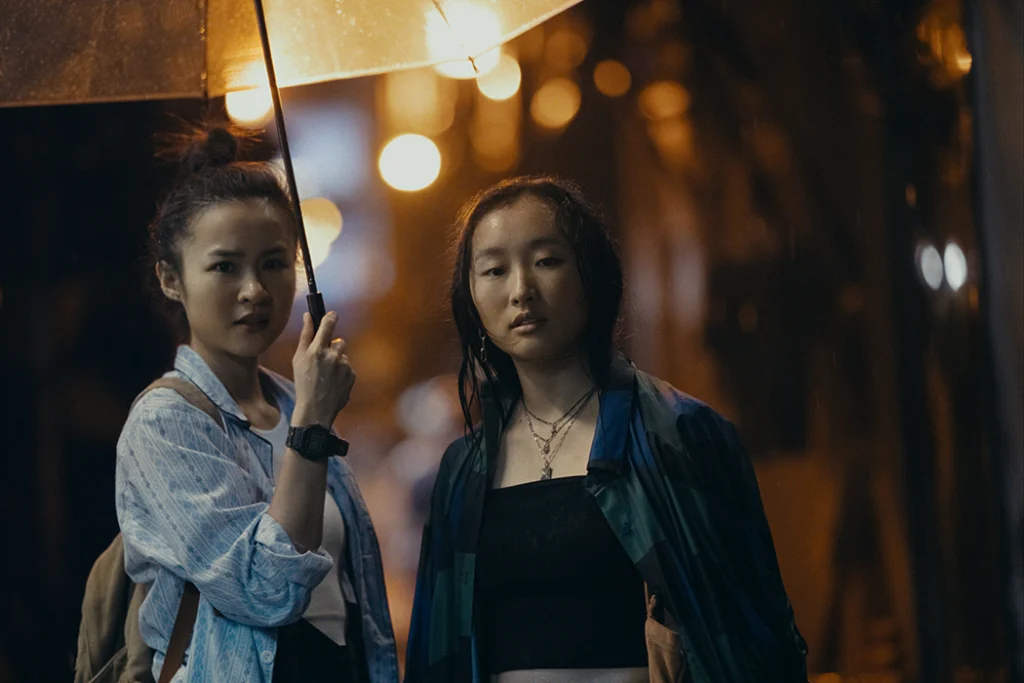
On including Punjabi in Expats
Aayush Sharma: You just talked about underrepresented communities. I was really happy that you gave Punjabi the language, a voice in this area. You see Sarayu Blue talking in very fluent Punjabi. Then we have Rabbani [Kaur] and Sudha [Bhuchar] talking in Punjabi. What was the idea of having Punjabi as a language in this series?
Lulu Wang: I think it came about really organically. I was working with, I brought Gursimran Sandhu in because we had met, and I talked about Hilary as an opportunity to show a different side of Hong Kong and expat life, and particularly in East Asia where there is a lot of colorism, right? So race in America often coincides with class, but in Asia it can coincide with class. But I think it also can not coincide with class. You can have wealthy brown people and you can have working class brown people and same thing in Hong Kong with East Asian people. And so I thought it was interesting to show Hilary as a very wealthy expat, but who doesn’t have the privilege of being light-skinned and has faced a lot of prejudice in her life because of that. So Gursimran herself is Punjabi American. And so as she developed the character, it just felt really natural for the character to speak the language with her mother.
Aayush Sharma: As a Punjabi myself, I felt really proud watching Punjabi being represented on such a big platform. I actually had a conversation with Sarayu Blue about how she actually learned Punjabi, because she comes from a Telugu background and both the languages are really different in dialect and everything. So how did you help? What was the things that you guys were told about Punjabi, how to make it more authentic?
Lulu Wang: Well, we had Sudha Bhuchar who plays Brinder, and she is fluent in Punjabi. And so she really helped guide us and said, oh, I don’t know if I would say it like this, or I would do it like this, a little bit. And we had a translator translate, but it always helps when the actors themselves are familiar with the culture and speak the language. So when people talk about authentic casting, for me it’s just like, it makes it easier, because they understand and they can represent that role in a really organic way and they can help you shape the script and the dialogue to sound more natural. So I did that both with the Punjabi as well as the Tagalog, as well as Cantonese. Because I don’t speak any of these languages. So I would constantly just show scenes even to people who are from those places and say, “Does this feel authentic? If not, tell me why. Criticize, let me fix it.” And I think that’s a really important part of the process.
On if she still prefers theatrical release for movies
Aayush Sharma: At the time of The Farewell, you kind of rejected an offer from a streaming platform to get a theatrical release. Now your project is all over the world through a streaming service. Now, if today you were making a movie and because you have experienced both the mediums, would you still choose your films to be in theaters?
Lulu Wang: Yeah, I think for films, I really believe in the theatrical model still, and it is something I miss with a series. I miss the audience and I miss the buildup. But I think there is also value in streaming platforms for something like a limited series where you have a big star and it will draw people. Because we have Nicole Kidman a lot because she has a huge fan base. You’re not going to get lost on the platform when you have Nicole Kidman and you have a production of this size. I really think it depends on the project. That’s the tricky thing is that with smaller movies, the industry are like, well, it’s low budget. We don’t have a lot of marketing money, so let’s just put it on the streamer. But those are the movies that are going to get lost. The smaller the movie is, the more it needs the marketing, actually.
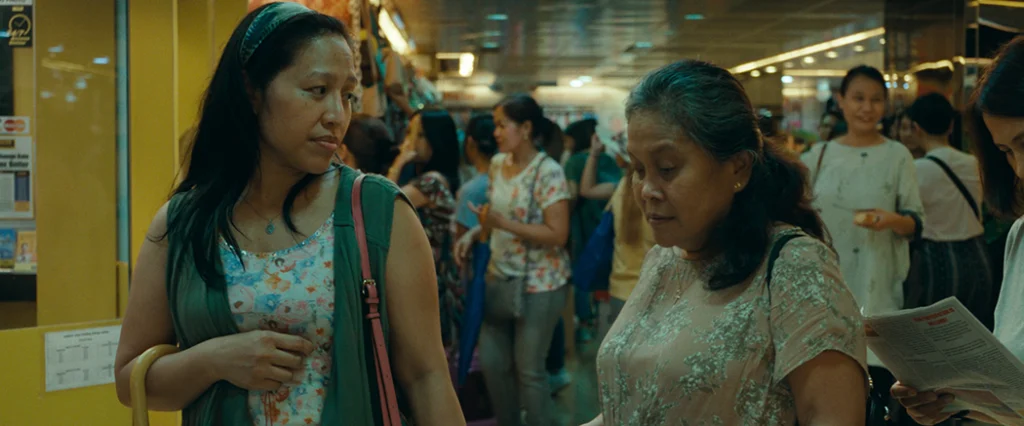
On casting Expats with Nicole Kidman, Sarayu Blue, Ji-yong Yoo, and more
Aayush Sharma: Just like you said, you’re working with such a stunning cast in this series. Apart from Kidman, you have Sarayu Blue, Ji-young Yoo. You have such beautiful stars. How did you choose your actors? What was the audition procedure like.
Lulu Wang: Well, Nicole [Kidman] came with the project because she was the EP and actor and brought me the project. And then we had a casting. We had to cast it.
Aayush Sharma: And I think you rejected it. I think you rejected the offer at first, right?
Lulu Wang: I did, yeah. Yeah, I did initially because it just felt like too daunting, too big of a project and that I wouldn’t be able to creatively control it. But yeah, so then Nicole convinced me and said that she would really support my vision. And then I cast Sarayu and Ji-young in the States through our amazing casting directors, David Rubin and Julia Kim. And then when we got to Hong Kong, we also did several rounds of international casting. So we were casting out of Manila and Hong Kong as well, and actually all over Asia. Also for Ji-young’s role, for Mercy, we were casting out of Korea as well.
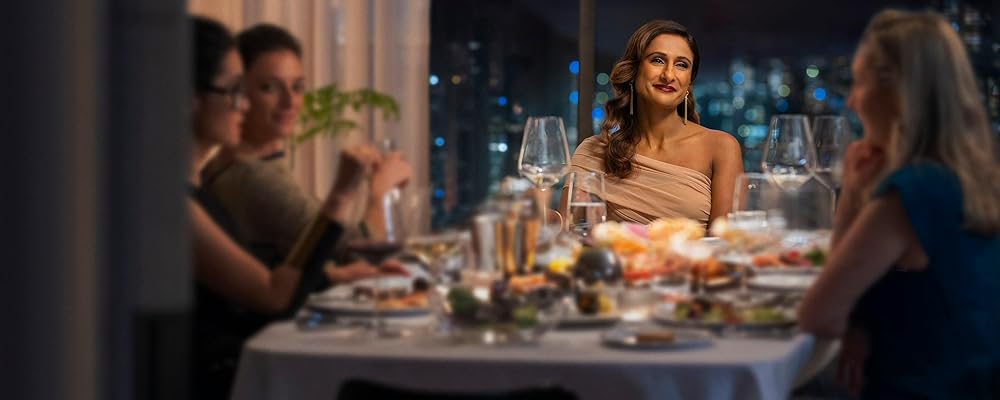
On the freedom of working independently
Aayush Sharma: You talked about low budget movies being just lost in these streaming platforms. Your colleague Ava DuVernay said that she didn’t go to big studios with her latest movie, Origin. She didn’t go to the bigger production houses because she didn’t want to compromise on her craft. Why do you think filmmakers of her stature are still forced to go to this route even when they have such a credible record as a filmmaker?
Lulu Wang: Well, I can’t speak for Ava, but I imagine that it’s all about freedom and where are the spaces that will both give you resources as well as freedom. And it’s a constant negotiation of the two things, like how much resource are you willing to give up, money, but in exchange for more freedom. Oftentimes when you’re doing a bigger studio project, the budget gets to a certain level. It comes with all of these things that you can’t cast somebody who’s not a movie star, but when you’re a person of color and you want to cast people of color, there aren’t as many movie stars and they might not be the right person for the role. And so that’s, I think why it’s sometimes better to work more independently. So you have that freedom and that flexibility, being more agile to cast who you want and shoot on film, for example, like Ava did.
On her favorite movies
Aayush Sharma: Amazing. Last set of questions, and these are some rapid fire questions, so I want to ask, so top three movies of all time.
Lulu Wang: Oh, no, no, no. I can’t do that. Rapid fire. That’s too much. No, no, no.
Aayush Sharma: I mean, your favorite three movies, any that movies that you can watch at any time?
Lulu Wang: No, I don’t know. I have so many different types of movies that I love in all different ways. Yeah, it’s so hard. Different genres. I love All About Eve is one of my favorite films of all time. I love the movie Secretary. I’m just thinking about The Conversation, Coppola, it’s one of my favorites, but I mean so many, I can’t really.
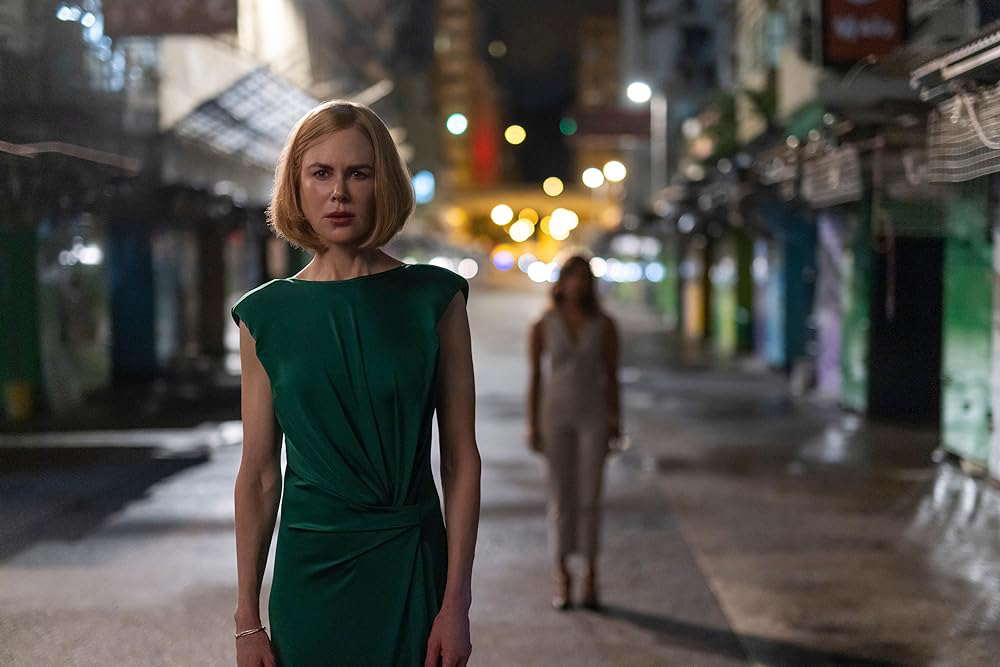
On actors she wants to work with, including Sarayu Blue, Ayo Edebiri, and Juliette Binoche
Aayush Sharma: Three actors that you want to work with.
Lulu Wang: Three actors that I want to work with. Well, I want to work with Sarayu again, we’re talking about doing something. So I don’t know if she counts because we’ve worked together, but I love our collaboration. I really want to work with Ayo Edebiri. I love her. God, who else? I mean, oh, Juliette Binoche and I have been talking about, I would love to work with her.
On what Lulu Wang would be if she weren’t a filmmaker
Aayush Sharma: Amazing. Last question, if you weren’t a filmmaker, what would you have been?
Lulu Wang: If I was not a filmmaker, I think I would still do something creative. My brother is a chef. I don’t know that I could be a chef, but I think I would own some kind of business around food, like farm stuff or farming, because I have a garden. I really like gardening. And so something around food. Or maybe I would be in music because I played piano for a very long time.
Aayush Sharma: Oh, nice. Amazing. So thank you so much Lulu, for giving me your time. It was such a great honor talking to you.
Lulu Wang: Thank you very much. Really nice to talk to you.
Expats is now streaming on Prime Video.
What did you think of the interview? Have you watched Expats yet or read the book it is based on? Let us know by connecting with us on X @MoviesWeTexted.
You might also like…
‘Expats’ Review: Lulu Wang’s Spellbinding Series Perfectly Showcases How Grief and Guilt Changes People

